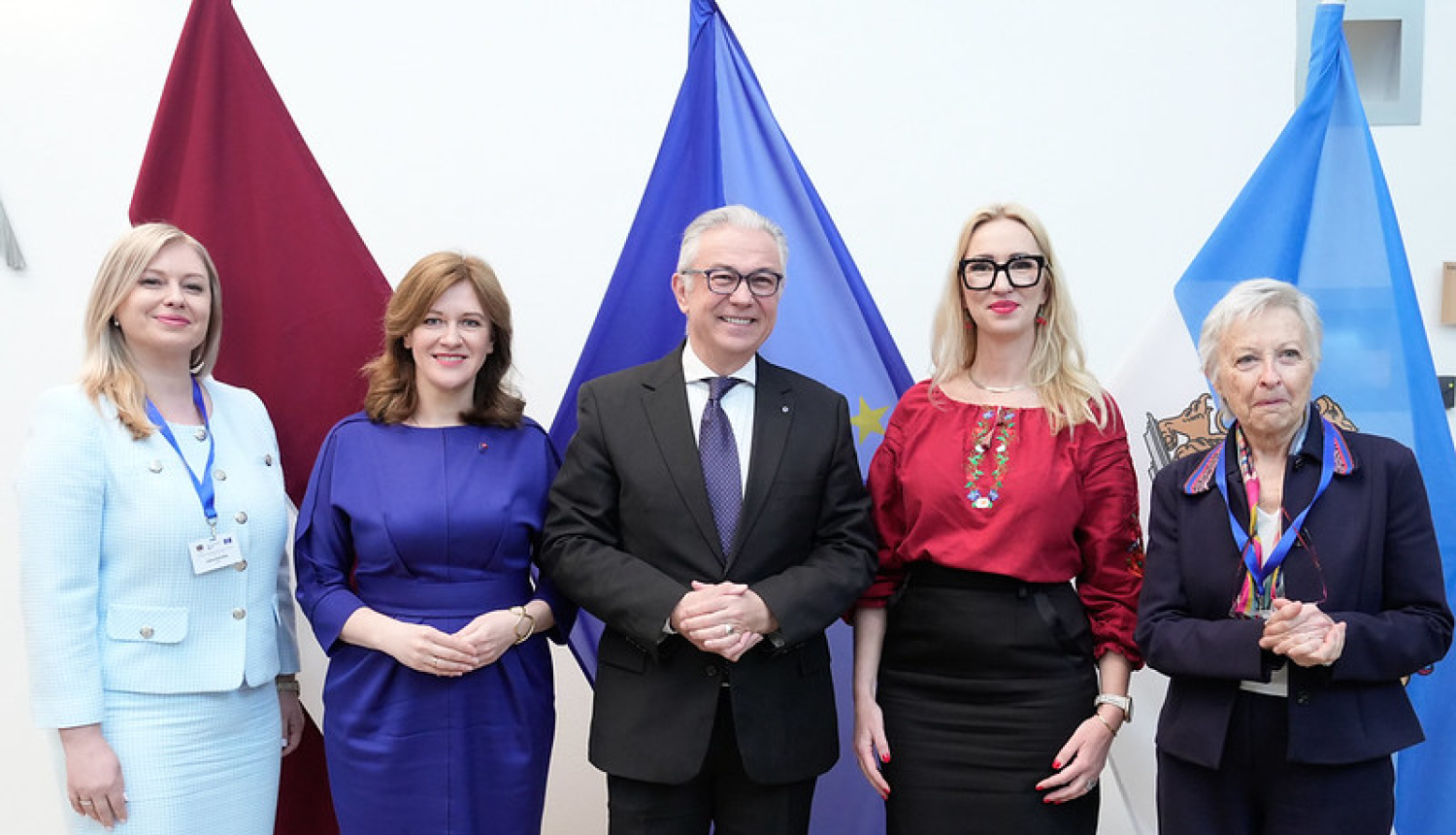On Thursday, 15 May, the Monitoring Committee of the Parliamentary Assembly of the Council of Europe meets in Riga, bringing together parliamentarians from 30 European countries and Theodoros Rousopoulos, President of the Parliamentary Assembly of the Council of Europe. Lauma Paegļkalna, Parliamentary Secretary at the Ministry of Justice, highlighted to the Committee the progress made in Latvia in strengthening the rule of law and democracy.
Latvia ranks 21st out of 142 countries in the Rule of Law Index 2024 and is one of the few countries to improve its performance every year. The EU Rule of Law Index shows Latvia as a leader in digital solutions and access to justice, explained Lauma Paegļkalna, Parliamentary Secretary at the Ministry of Justice.
Since 1 January this year, Latvia has had a Justice Academy - a single training centre for judges, court staff, prosecutors and assistant prosecutors, which provides qualification development activities for investigators in interdisciplinary issues. “Lifelong learning and professional development has become an integral part of the judiciary professions, because without strong courts, prosecutors and investigations, neither strong democracy, nor good governance, nor stable and sustainable development of society and the state is possible,” said Ms Paegļkalna at the meeting.
The Ministry of Justice, in cooperation with other institutions, has introduced and continues to introduce various digital tools, thus ensuring better exchange of information in the justice system - digital reforms now allow e-filing, machine-readable judgments and real-time tracking of court cases.
Last month, the Parliamentary Assembly of the Council of Europe adopted a resolution on “Foreign interference - a threat to democratic security in Europe”. Latvia actively participated in the drafting of this document.
The work done every day to strengthen the rule of law reflects the principle of a self-sustaining democracy. “The rule of law is our national DNA, forged in the struggle for independence and strengthened every year since,” said Ms Paeglkalna at the meeting.
The Assembly also discussed strengthening mechanisms of action to more effectively prevent potential conflicts or actual theft of democracy in any country.
Further information:
The mandate of the Assembly's Monitoring Committee includes monitoring the fulfilment by member states of their obligations under the Council of Europe's Statute, the European Convention on Human Rights and other Council conventions. The Committee also monitors the fulfilment of the commitments undertaken by the authorities of the Member States upon their accession to the Council of Europe.
This year marks the 30th anniversary of Latvia's accession to the Council of Europe, an organisation that sets European standards in democracy, human rights and the rule of law. Latvia became a member of the Council of Europe on 10 February 1995.



